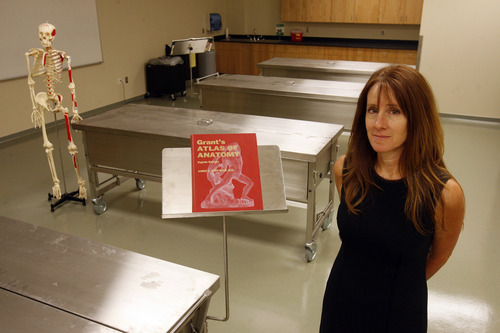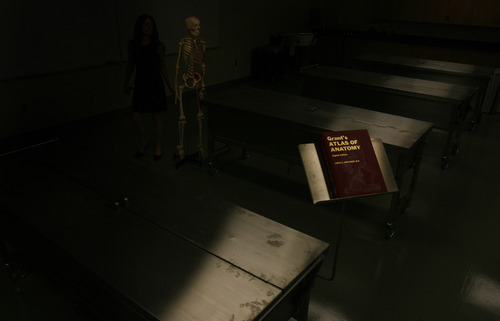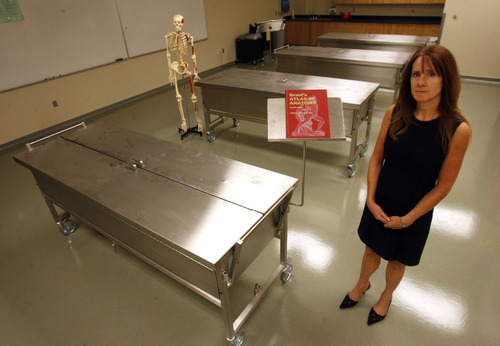This is an archived article that was published on sltrib.com in 2011, and information in the article may be outdated. It is provided only for personal research purposes and may not be reprinted.
Salt Lake Community College, whose main campus is in Taylorsville, is now a stepping stone to a career in funeral services through a health-science program that opens next semester at the college's West Jordan campus.
Utah has no professional program in mortuary science, so aspiring embalmers and funeral directors have to leave the state to get certified in the trade, according to Sherrie Loewen, who heads SLCC's allied health division. Loewen's division designed the 18-month degree program, which has won approval from the state Board of Regents, in partnership with the local industry.
The funeral profession requires a disparate array of skills, including knowledge of anatomy and physiology, an ability to provide emotional support and business acumen, according to Brandon Burningham, president-elect of the Utah Funeral Directors Association and a member of the college's program advisory committee.
"If you want a profession that allows you to come home at the end of the day and feel like you made a difference in someone's life, you may want to consider this," Burningham said. "You are hands-on with people at a very difficult time when they have lost a loved one. You are there to help them adjust to the new normal."
SLCC plans to retrofit its cadaver room, currently used by the occupational and physical therapy assistant programs, for use as an embalming facility. Officials expect to work with the state medical examiner and the University of Utah, which has a well-established body-donor program, to obtain cadavers for students to practice embalming techniques and "the restorative arts," applying makeup and massage to prepare the deceased for display. The U. notes it has not agreed to provide cadavers.
SLCC is hiring a director for the program, which will employ one tenure-track faculty member and eight adjuncts, according to its program proposal.
The Utah Department of Workforce Services estimates 168 openings will be created in this field over the next nine years on the Wasatch Front, with median hourly wages of almost $21. Funeral director salaries range between $39,000 and $70,000.
"We are going to need funeral professionals as the baby boomers come of age," said Burningham, general manager for Memorial Mortuaries and Cemeteries in Murray. "Right now our workforce wouldn't be able to handle the surge of deaths we'll be experiencing."
Like many of SLCC's health-science programs, the mortuary-science program will provide an associate's of applied science, a degree tailored to a specific profession that won't readily transfer toward a bachelor's degree later.
It will accept students in cohorts of up to 25. No programs are available in New Mexico, Idaho, Wyoming and Montana, so Loewen expects to draw students from these neighboring states, she said.
According to Loewen, a big component of the program will be practicums in funeral homes. Burningham said students will be welcome at Memorial's mortuaries to watch and learn, but embalming will be done by trained professionals.







